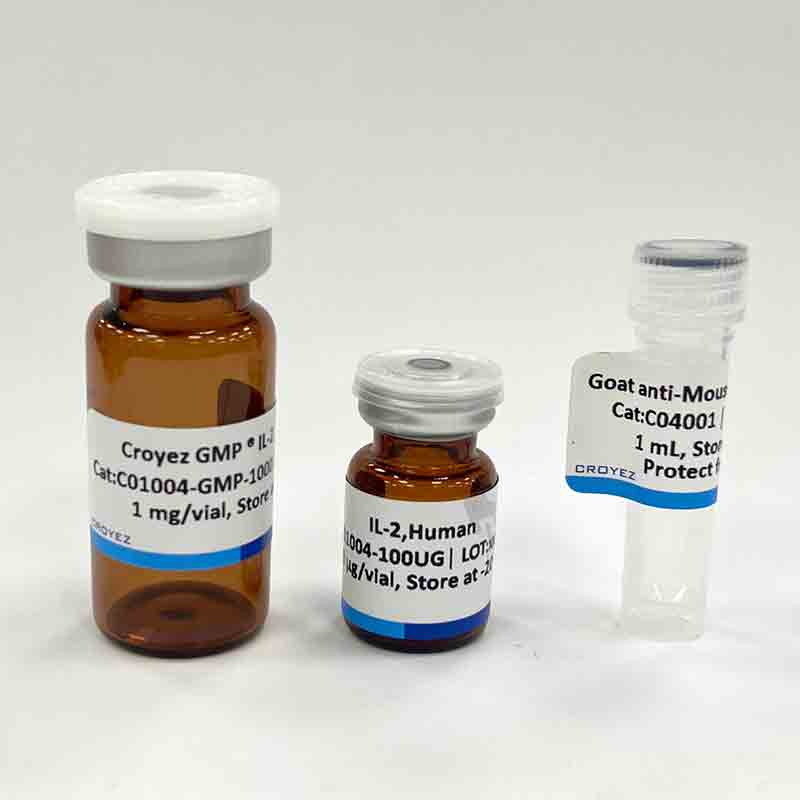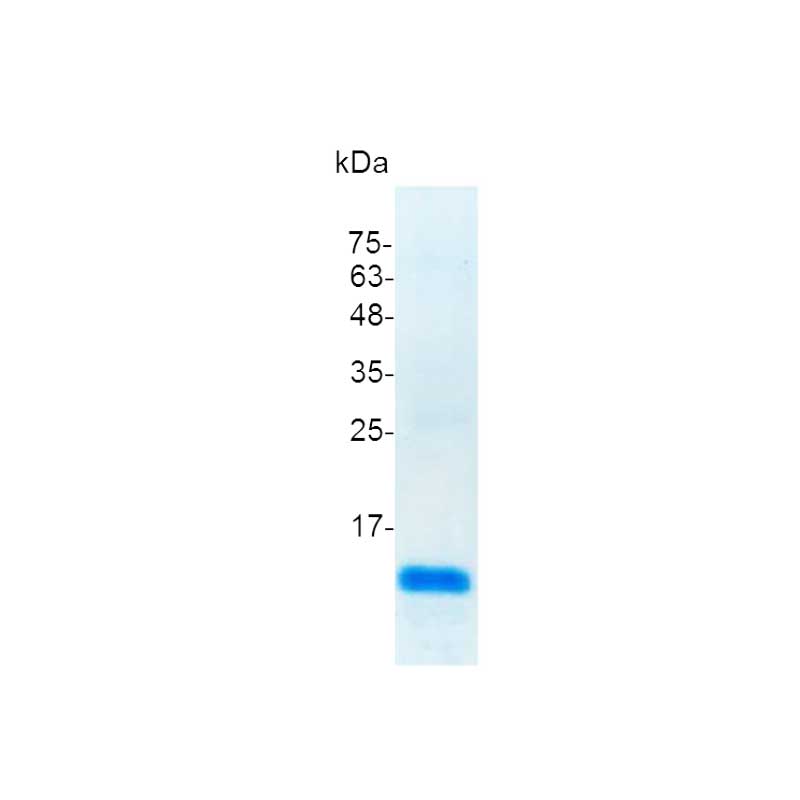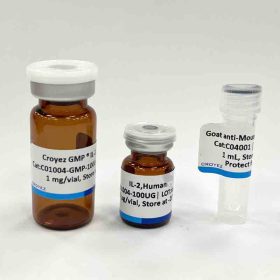Nerve growth factor (NGF) is a neurotrophic factor and neuropeptide primarily involved in the regulation of growth, maintenance, proliferation, and survival of certain target neurons. NGF-β acts through its receptor β-NGFR and is involved in the development and maintenance of the sensory and sympathetic nervous systems. NGF-β also is also involved in the growth, differentiation, and survival of B lymphocytes. Human, mouse and rat proteins show cross-reactivity.
Sequence:
MSSSHPIFHRGEFSVCDSVSVWVGDKTTATDIKGKEVMVLGEVNINNSVFKQYFFETKCRDPNPVDSGCRGIDSKHWNSYCTTTHTFVKAL
TMDGKQAAWRFIRIDTACVCVLSRKAVRRA with polyhistidine tag at the C-terminus
Source:
Escherichia coli
Endotoxin Test:
<0.1 EU per 1 μg of the protein by the LAL method.
Activity:
Measure by its ability to induce TF-1 cells proliferation. The ED50 for this effect is <0.7 ng/mL. The specific activity of recombinant human beta-NGF is > 1 x 106 IU/mg.
Purity:
>98% as determined by SDS-PAGE. Ni-NTA chromatography
Formulation:
The protein was lyophilized from a solution containing 20 mM sodium citrate, 0.2 M NaCl, pH 3.5.
Reconstitution:
It is recommended to reconstitute the lyophilized protein in sterile H2O to a concentration not less than 100 μg/mL and incubate the stock solution for at least 20 min to ensure sufficient re-dissolved.
Storage:
Lyophilized protein should be stored at -20°C. Upon reconstitution, protein aliquots should be stored at -20°C or -80°C.
Note:
Please use within one month after protein reconstitution.





